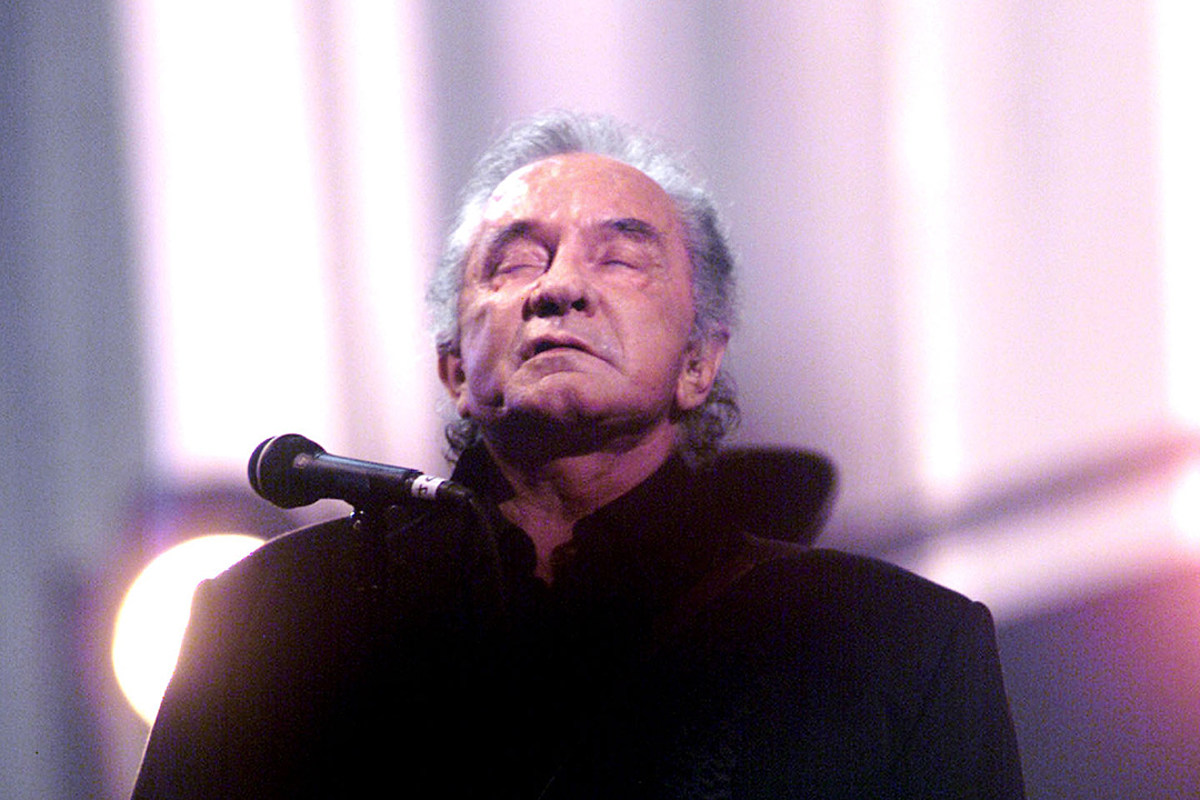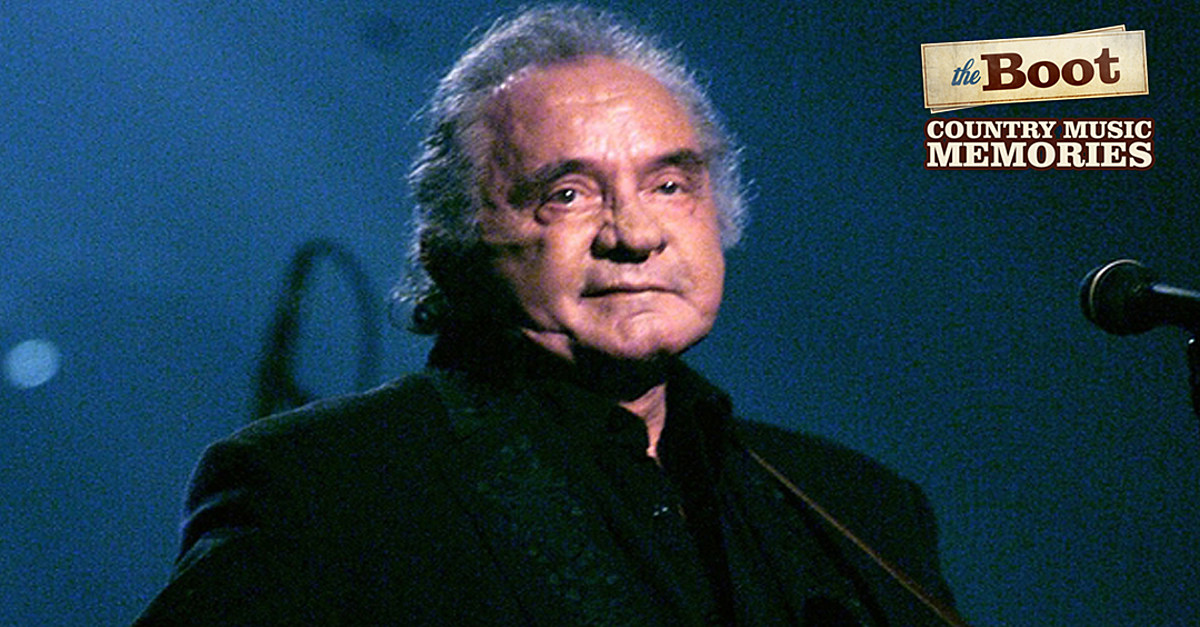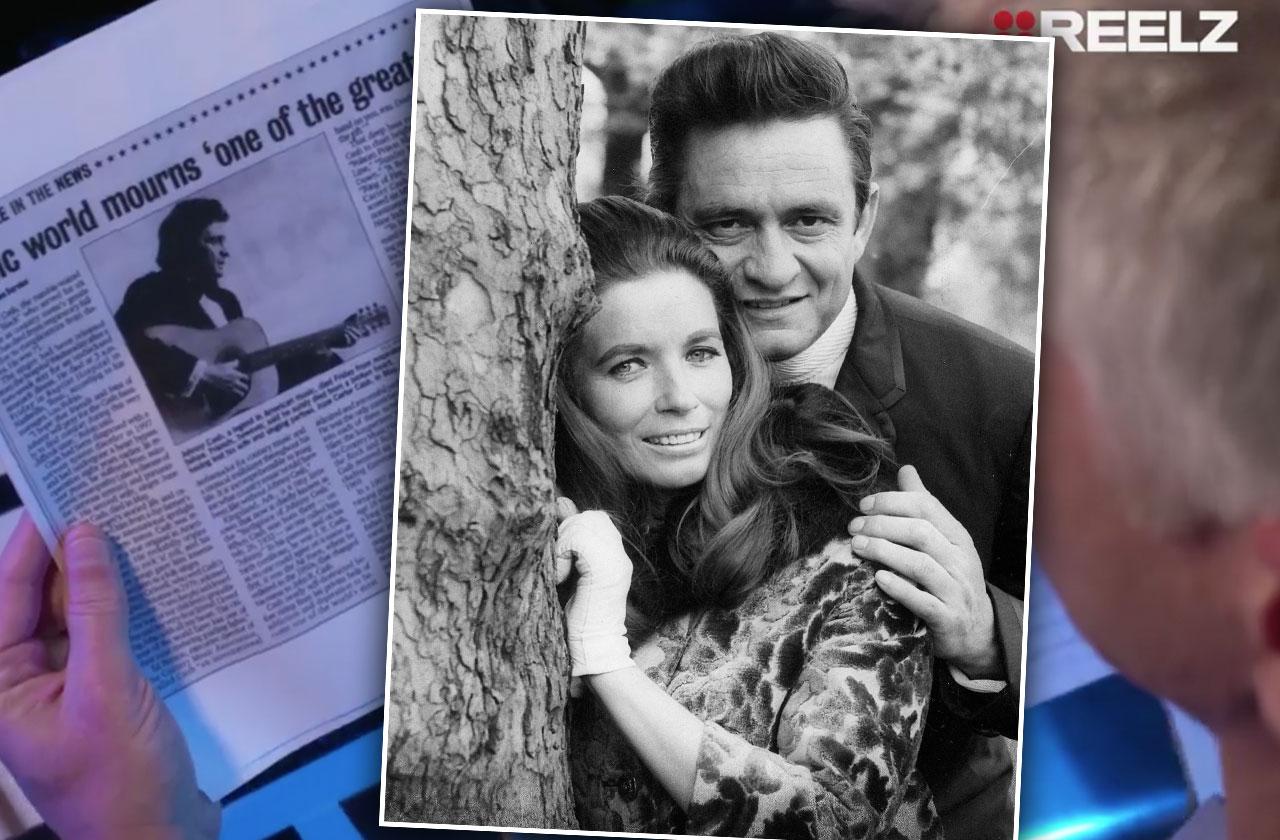The world felt a little quieter on September 12, 2003, when news spread that Johnny Cash, that iconic voice of country music, had left us. His passing, at the age of 71, marked the end of an era for many who found solace and strength in his songs. It was a moment that, you know, really hit hard for a lot of people who had followed his remarkable path through life and music.
For someone who sang about the deep feelings of loneliness, about the idea of death itself, about love, and about a simple Christian belief, his departure felt, in a way, like the closing of a significant book. His sound, the stories he told, they pretty much painted pictures of a stark, wide-open landscape, a bit like the terrain he knew so well. It’s almost as if his very being was intertwined with the raw, honest sentiments he shared with the public.
His final days came just a few months after another profound loss in his life, one that, in some respects, truly shaped his last creative burst. The circumstances surrounding his final moments and the reasons behind them are, as a matter of fact, part of a story that speaks volumes about his resilience, his struggles, and the deep connections he held. We'll take a closer look at the life he led and the way his time on earth concluded.
Table of Contents
- The Life and Times of Johnny Cash
- What Was Johnny Cash's Age at the Time of His Passing?
- How Did Johnny Cash Die?
- Who Was June Carter Cash and How Did Her Death Relate to Johnny Cash's Passing?
- Johnny Cash's Enduring Musical Legacy
The Life and Times of Johnny Cash
Born John R. Cash on February 26, 1932, in a place called Cleveland County, Arkansas, this man would grow to become a voice recognized by millions. From his earliest years, there was, you know, a clear fondness for the sounds that filled his world, the kind of music that surrounded his existence. It was in that rural setting that the groundwork for his unique artistic expression was laid, shaping the person he would become and the songs he would bring forth. His personal story is, in fact, as compelling as any of the tales he shared through his melodies.
He was, basically, a figure who seemed to carry the weight of the world, or at least the weight of honest human feeling, on his shoulders. This quality was a big part of why so many people connected with him. His way of singing, a bit unyielding and very direct, about loneliness and the idea of dying, about love, and a simple, heartfelt Christian belief, truly mirrored the sometimes harsh and empty spaces of life. It’s that raw honesty that, as a matter of fact, made his art so powerful and so lasting for so many listeners.
In the 1960s, there was a period where his widespread appeal started to lessen a bit, as he was dealing with a dependence on certain substances. This struggle, you know, would come back into his life at different points. It was during these challenging moments that, quite often, another important figure stepped in to help guide him. His personal struggles, therefore, became part of his public story, making him, in a way, even more relatable to those who faced their own difficulties.
Early Days and Musical Roots
John R. Cash’s beginnings were, in essence, quite humble, but the sounds of music were, apparently, always present. His upbringing in Arkansas had an influence on his artistic output and his professional path that, you know, really can't be overstated. It was in this setting that he picked up his first notions of rhythm and melody, which would, in time, shape his entire professional identity. The roots of his distinct style were firmly planted in the experiences and sounds of his youth.
He became known for his iconic look, often referred to as "The Man in Black," a persona that, in some respects, matched the serious, sometimes somber, nature of his lyrical content. This image, combined with his deep, resonant vocal delivery, made him stand out. He had, as a matter of fact, a certain kind of guitar, his "Hot & Blue Guitar," that became a visual symbol alongside his powerful sound. His early musical efforts paved the way for a career that would span many decades and touch many hearts.
The lessons learned and the experiences gathered during his early years were, quite literally, woven into the fabric of his musical expression. You can, for instance, hear echoes of his past in the stories he tells, in the way he phrases his thoughts, and in the very instruments he chose to play. This connection to his beginnings made his art feel, basically, authentic and deeply personal, resonating with listeners who appreciated his genuine approach to songwriting and performing.
Here's a quick look at some personal details about Johnny Cash:
| Full Name | John R. Cash |
| Born | February 26, 1932 |
| Birthplace | Cleveland County, Arkansas |
| Died | September 12, 2003 |
| Age at Death | 71 |
| Spouse | June Carter Cash (married 1968) |
| Children | Five |
| Known For | Country music star, "The Man in Black," stoical singing |
| Cause of Death | Complications from diabetes |
| Brother | Tommy Cash (died at 84) |
What Was Johnny Cash's Age at the Time of His Passing?
Johnny Cash, the beloved country singer, took his final breath on September 12, 2003. At that particular moment, he was 71 years old. This age, you know, often marks a time when many people have already stepped back from their professional lives, but for Cash, his artistic output continued, almost fiercely, until the very end. His final recording efforts were, in fact, a testament to his enduring spirit and his dedication to his craft, even as his health was, basically, giving out.
The news of his passing spread quickly, leaving many fans and fellow artists feeling a profound sense of sadness. Seventy-one years is, in some respects, a good long life, but for someone who had given so much to the world through his music, it still felt, for many, like a loss that came too soon. His final years were marked by both personal sorrow and a creative surge that produced some of his most poignant work, demonstrating his ability to find expression even in the face of great difficulty.
The specific date of his departure, September 12, 2003, is, you know, etched in the memories of those who followed his career. It was a day that closed a chapter on a life that had seen so many ups and downs, so much public adoration, and so many private battles. His age at death, 71, reflects a full life lived, but also, in a way, a life that could have offered even more, had circumstances been different.
The Final Chapter of Johnny Cash's Life
The last part of Johnny Cash's life was, in a way, characterized by both great personal loss and an amazing burst of creative energy. His health had been a concern for some time, but he continued to make music, which was, you know, truly remarkable. He literally wrapped up his final track, a clear sign of his dedication to his art until the very end. This period saw him producing a lot of new material, almost as if he knew his time was becoming short.
His passing came in a hospital located in Nashville, Tennessee, a city that, in some respects, is the very heart of country music. This was, basically, where he had spent so much of his professional life, creating many of his classic recordings. The location of his death felt, therefore, quite fitting, a final farewell in the place that had witnessed so much of his artistic journey. It's almost as if his spirit, even in its final moments, was connected to the sounds he helped define.
The sheer volume of new material he created in his last months is, honestly, quite astonishing. He had, as a matter of fact, made a promise, and he kept it, crafting more than four dozen songs in the weeks that followed a particular, very personal loss. This period, which included the release of some "deep cuts" from his work, showcased his ability to channel profound feelings into his art, even when faced with significant sorrow. His last artistic efforts were, therefore, a powerful statement about his unwavering commitment to music.
How Did Johnny Cash Die?
Johnny Cash's death was caused by complications arising from diabetes. This condition, you know, can affect many parts of the body over time, and it was the underlying reason for his final decline. He passed away in a hospital in Nashville, Tennessee, after battling these health issues for a period. His body, in a way, had simply reached its limit, despite his strong spirit and continued desire to create. It was a common condition, but for him, it proved to be the ultimate challenge.
The kind of lifestyle he led, which was, basically, quite intense and often described as "rock 'n' roll," might make some people think of other causes. However, the condition that ultimately took his life is, in fact, quite common among many individuals, not just those in the public eye. This fact, in some respects, makes his passing even more relatable, as it highlights a health issue that touches countless lives around the globe. His battle with it was, therefore, a very human one.
His health had been a concern for a while, and he had faced various physical challenges throughout his later years. The complications from diabetes are, you know, varied and can lead to a gradual weakening of the body's systems. It was these specific complications that led to his death at the age of 71. His passing, therefore, was not sudden or unexpected in the sense of a single, acute event, but rather the culmination of ongoing health struggles.
Understanding the Health Challenges of Johnny Cash
Johnny Cash’s health journey was, in a way, a long and sometimes difficult one, marked by various ailments in addition to diabetes. His struggle with drug dependence, which, you know, reappeared throughout his life, also took a toll on his body over the years. This particular battle was something he faced publicly and privately, and it certainly played a part in his overall physical condition. It's almost as if his body, in some respects, carried the marks of his life's intense experiences.
The advice and help from June Carter, a member of the famous Carter Family, were, basically, very important in his efforts to overcome his dependence. She was, in fact, credited with pulling him back from that particular struggle. Her influence on his well-being was, therefore, immense, providing him with a source of strength and motivation. This support system was, you know, a critical factor in his ability to continue his career and his life, despite the health challenges he faced.
The specific complications from diabetes that led to his death are not detailed in the provided information, but the general nature of the disease suggests a gradual decline in bodily functions. It’s important to remember that, for someone of his age, battling such a chronic condition, the body's ability to recover from various stresses becomes increasingly difficult. His passing, in this context, was the natural, though sad, conclusion of a long and complex health history.
Who Was June Carter Cash and How Did Her Death Relate to Johnny Cash's Passing?
June Carter Cash was, you know, a truly remarkable woman, a country music artist herself, and a member of the famous Carter Family. She became Johnny Cash's second wife in 1968, and their relationship was, in a way, legendary, known for its deep love and mutual support. She was, as a matter of fact, a significant force in his life, particularly in helping him with his struggles with addiction, which he himself acknowledged. Their bond was, therefore, something quite special, a partnership that went far beyond the stage.
Her own passing occurred earlier in the same year as Johnny's, just four months before he died. June left us at the age of 73, following complications that arose from heart surgery. This was, obviously, a massive blow to Johnny, who had relied on her so heavily for so many years. The loss of his beloved wife was, in some respects, a profound sorrow that deeply affected his remaining time. It's almost as if a vital part of him went with her.
The timing of their deaths, so close together, is something that, you know, many people find incredibly poignant. Johnny Cash's death came just a few months after June Carter Cash's passing, creating a narrative of two lives so intertwined that they seemed to conclude almost in unison. This proximity in their final moments underscores the deep connection they shared, suggesting that the loss of June might have, in a way, hastened Johnny's own decline. He kept a promise, creating many songs after her death, a clear sign of his grief and dedication.
Johnny Cash's Enduring Musical Legacy
Johnny Cash's impact on music is, basically, undeniable, stretching far beyond the boundaries of country music itself. His songs, which spoke to the everyday experiences of people, resonated with listeners from all walks of life. He was, in a way, a storyteller, giving voice to those who felt unheard, singing about the raw feelings of being human. His distinct style, a mix of country, folk, gospel, and rockabilly, made him a truly unique artistic figure.
Even after his passing, his music continues to find new audiences and inspire artists across various genres. His recordings, which include a vast collection of songs, are still listened to, still celebrated, and still studied. The themes he explored – redemption, struggle, faith, and love – are, you know, timeless, ensuring that his work remains relevant. His status as "The Man in Black" is, therefore, more than just an image; it represents a deep commitment to speaking truth through his art.
His influence can be seen in the careers of countless musicians who followed him, many of whom cite him as a major inspiration. The way he approached his craft, his honesty, and his willingness to tackle difficult subjects, all contributed to a legacy that is, in fact, quite powerful. His life and his music serve as a reminder that true artistry comes from a place of deep feeling and a commitment to expressing it, regardless of the challenges faced. Tommy Cash, his brother, who was also a country singer, continued to carry on the family's musical tradition, further cementing the Cash family's place in music history, until his own passing at the age of 84.
This article has explored the circumstances surrounding Johnny Cash's age at death, his passing at 71 due to complications from diabetes, and the profound impact of his wife June Carter Cash's death just months prior. We've touched upon his early life, his struggles, his enduring musical contributions, and the personal details that shaped his remarkable journey as "The Man in Black."


